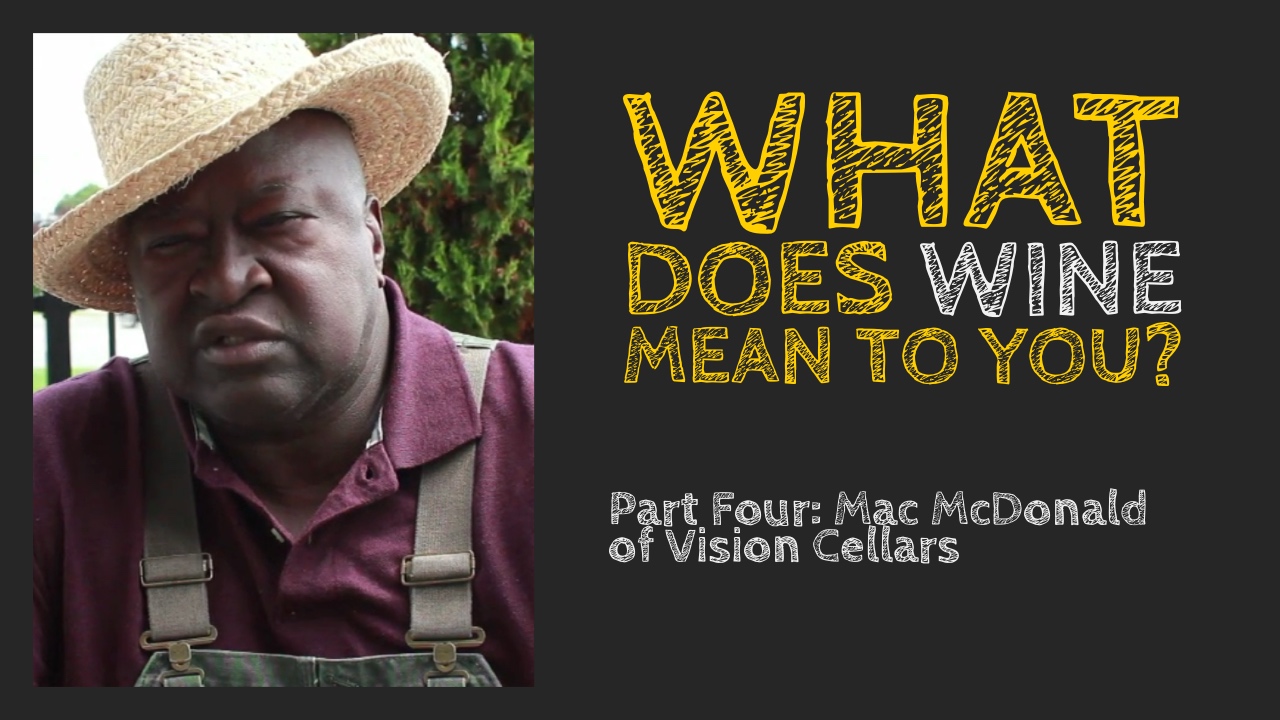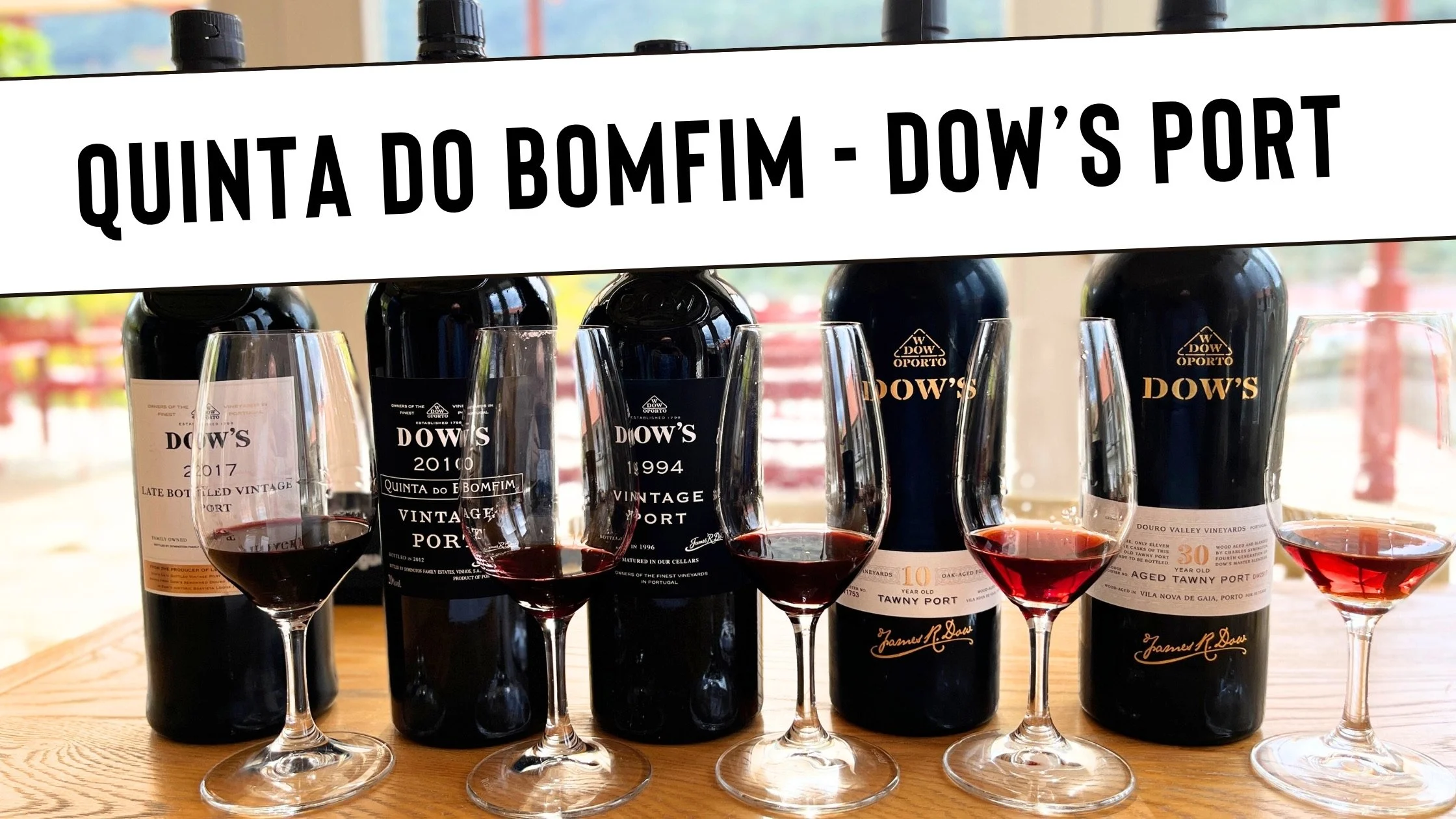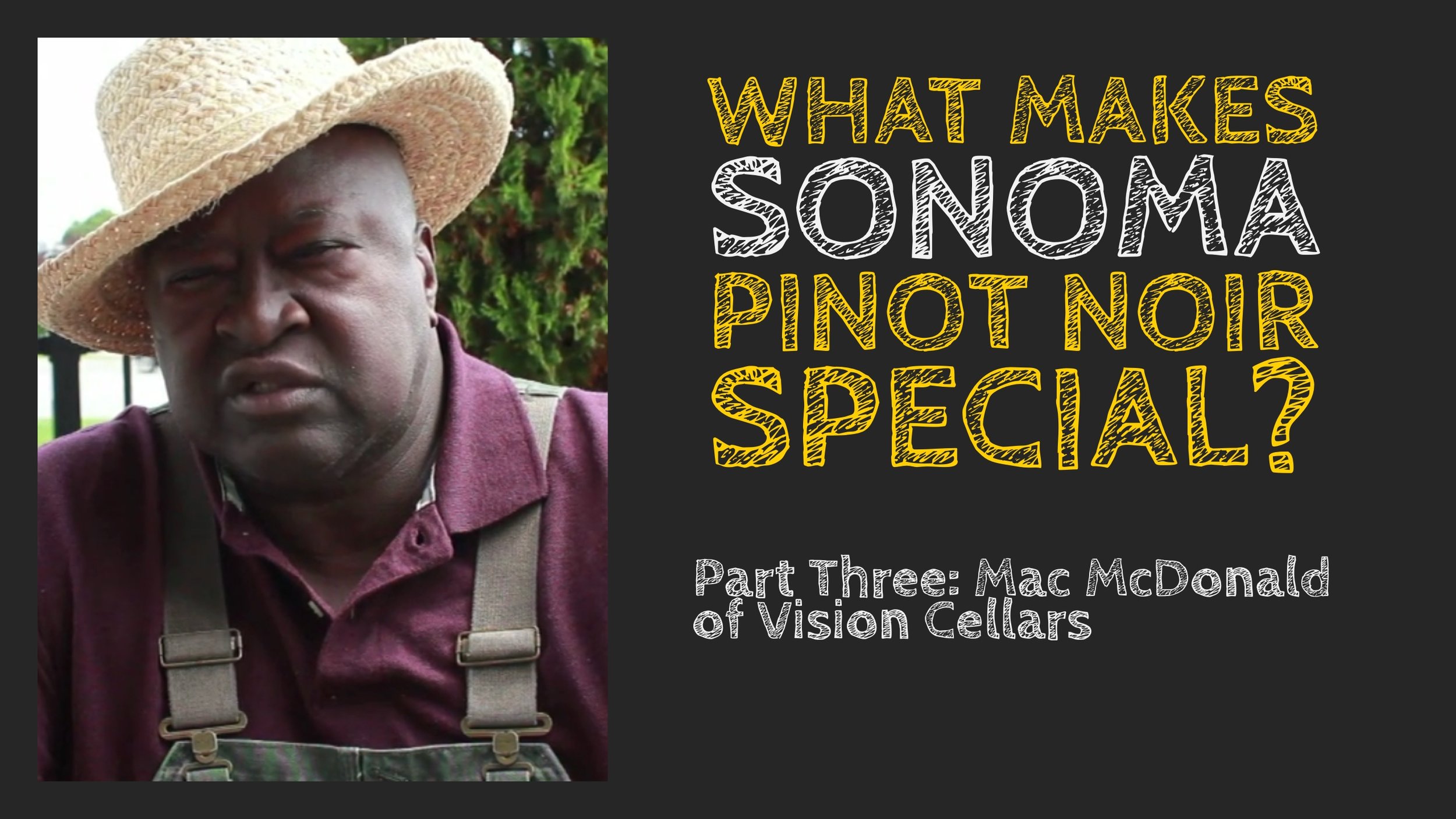This the fourth part of my video interview with Mac McDonald of Vision Cellars. In this segment, Mac McDonald answers the question that I ask every winemaker - What Does Wine Mean to You?
- The first part of the interview is here. "From Rural Texas to Napa Valley Wine Country."
- The second part of the interview is here. "How (and Why) to Grow Pinot Noir."
- The third part of the interview is here. "What Makes Sonoma Pinot Noir Special?"
Please enjoy this three minute video or read the transcript underneath it.
This is Episode #58 of Understanding Wine with Austin Beeman.
Mac McDonald:
What does wine mean to me? Wine means to me friendship, enjoyment, socialization. It means a lot to me, and the reason that I say that is because I've met so many wonderful folks through this wine business and having a glass of wine. I just think that folks who drink wine, they're very interesting individuals because you have something in common right away, you can talk to them about it. It don't matter if you don't even like the variety of wine. You may like Pinot Noir. You may like cabs. You may like Zin. Whatever it is, you got something in common. I find the reason that I say that socialization, friendship thing, over the years that I've been traveling with Miss Lil around the country doing wine events, wine tasting, I've met so many folks.
I probably have, come to visit our winery or visit our vineyard every year, probably have over 1,000 people just stop by to see me that I met from all over the United States, and I think that that felt really good that I meet these folks and give them my card and says, "Come out to visit us. We'll make you lunch or something," and they show up. That's a good feeling because I wouldn't have never met the folks. The big socialization, the big sharing of knowledge, from the knowledge that I get from folks like yourself, doing wine tasting events, and I'm even going to do a wine tasting maybe here later on today. You come in and meet these folks and they come out and see you, or when I come back here to Ohio, I go to these events. I had a big event every night I've been here. I've been here four nights, and it's somewhat like an old family reunion meeting. They come back time and time to see you, and you may not remember all of their names, but they remember who you are, and you just get to see them and you talk to them.

I don't know what I'd do to trade that socialization off for someone else, and let's face it. I enjoy wine.
Check out more great wine content!



































